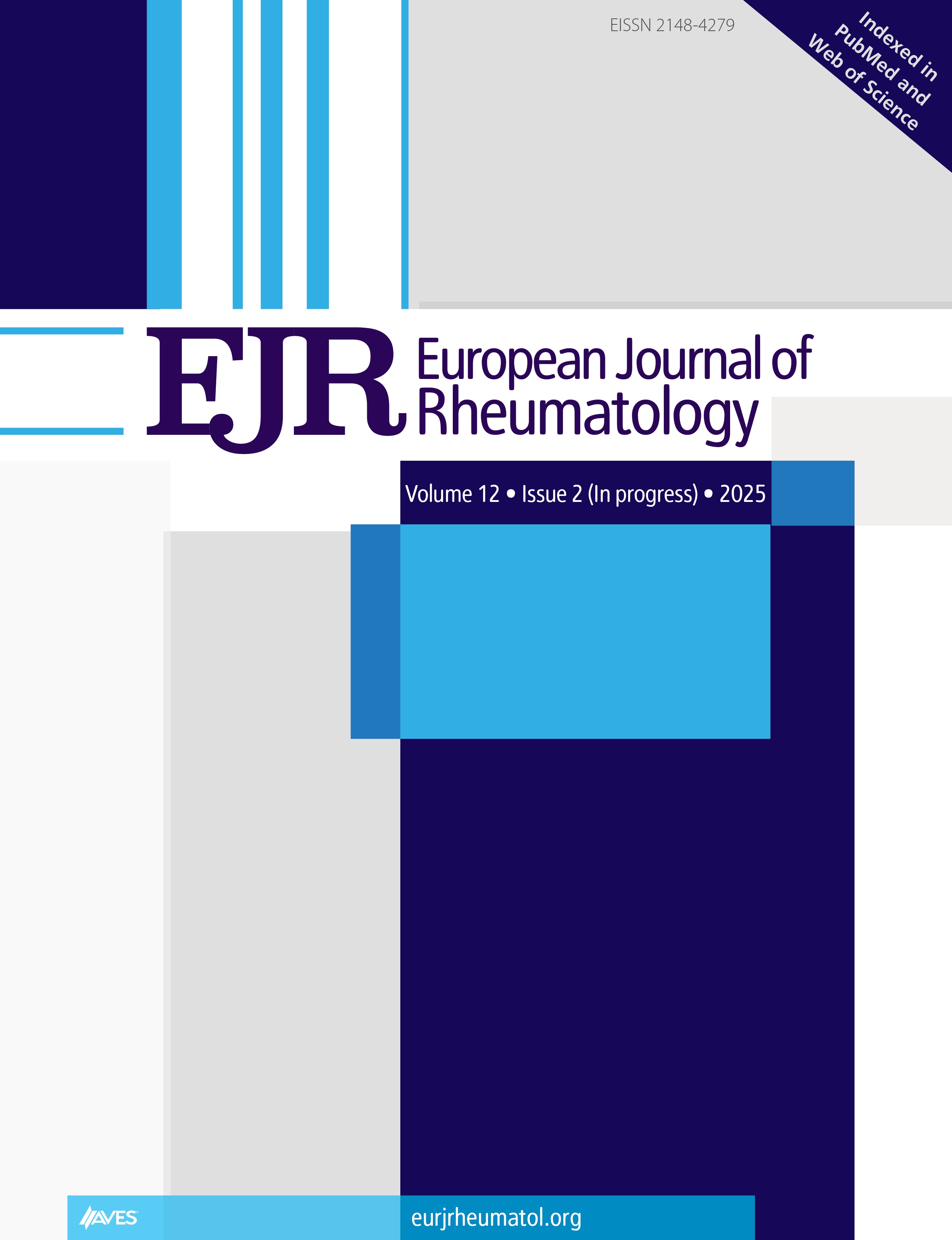Abstract
Objective: Behçet’s disease (BD) is a chronic, relapsing type of vasculitis of unknown etiology and is characterized by oral and urogenital ulcers and ocular inflammation with cutaneous, musculoskeletal, vascular, and nervous system manifestations. Few cases involving the nasal mucosa have been reported in the literature, and the true prevalence of BD remains unknown. Neurological involvement associated with BD might play a more important role in causing olfactory dysfunction than mucosal involvement, but sufficient clinical data are not available on the effect of BD on olfaction in adults. We therefore evaluated the olfactory function of patients diagnosed with BD.
Material and Methods: Patients were chosen from among a consecutive patient group population who visited the internal medicine rheumatology polyclinic and otolaryngology departments of Ondokuz Mayıs University Hospital. A total of 50 patients (both males and females) aged 18 to 60 years with a diagnosis of BD and 46 healthy controls (matched to the study group in terms of age and gender) were included. BD was diagnosed based on the criteria defined by the International Study Group for BD. A complete clinical history was taken for and a physical examination was performed in all participants. Patients with other rheumatic diseases; obstructive nasal pathologies leading to conductive-type olfactory dysfunction (e.g., septum deviation or nasal polyp); advanced systemic disease (e.g., hypertension or malignancy); a history of antithyroid, antihistamine, antidepressant, or steroid medication use within the past month; or who were current smokers, had an active upper respiratory infection, or had a history of otolaryngologic operations were excluded. The results of the “Sniffin’ Sticks” (SS) olfactory test were compared between the two groups.
Results: The mean age of the 50 BD patients was 35.3±10 years; that of the 46 health controls was 36.9±11 years. There was no significant group difference in age or gender distribution (p>0.05). Odor identification and overall scores were significantly lower in the BD group than in the control group. There were no significant differences in odor discrimination scores between the BD and control groups (p>0.05).
Conclusion: To our knowledge, this is the first study to evaluate olfactory function in patients diagnosed with BD using the SS test. Odor identification was more impaired in BD patients than in healthy controls, but there was no group difference in odor discrimination. BD patients should also be assessed for the involvement of olfactory function and may require treatment due to a malfunction of the olfactory system that affects the quality of life.



.png)